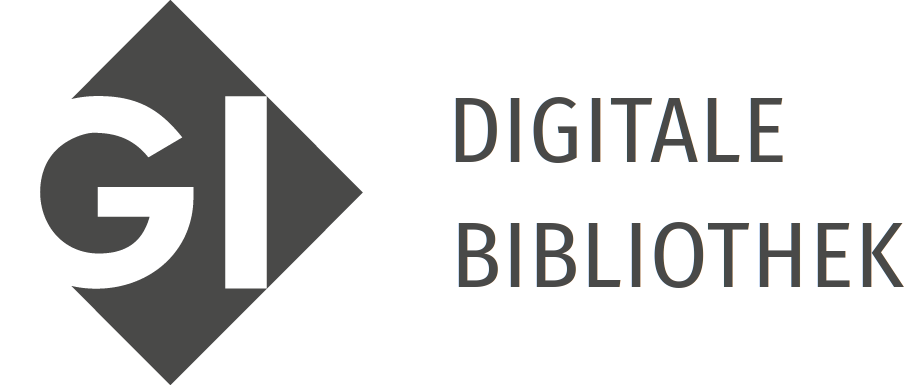513 Ergebnisse
Suchergebnisse
1 - 10 von 513
- TextdokumentProceedings of DELFI Workshops 2024 Vorwort(Proceedings of DELFI Workshops 2024, 2024) Kiesler, Natalie; Schulz, Sandra
- Conference paperTowards Open Science at the DELFI Conference(Proceedings of DELFI 2024, 2024) Kiesler, Natalie; Röpke, René; Schiffner, Daniel; Schulz, Sandra; Strickroth, Sven; Ehlenz, Matthias; Heinemann, Birte; Wilhelm-Weidner, ArnoDespite the increasing awareness of Open Science within the educational technology community, conferences, such as DELFI, do not yet foster the publication of research data including software. To address this, we conducted a survey eliciting... and lacking resources to publish data. Nonetheless, researchers seem open for new publication formats. Moreover, we analyzed author’s intentions to publish data related to their DELFI submissions in 2023 (n=66). Many researchers assume not to have data
- TextdokumentOpen Science in den Bildungstechnologien: Zur Unterstützung bei der Veröffentlichung von Forschungsdaten(Proceedings of DELFI Workshops 2024, 2024) Schiffner, Daniel; Kiesler, Nataliedem Leitungsgremium, zukünftigen DELFI-Verantwortlichen sowie dem Projekt Nationale Forschungsdateninfrastruktur für und mit der Informatik (NFDIxCS) geteilt.
- TextdokumentKünstliche Intelligenz und Bildung in Deutschland: Erkenntnisse aus dem KI-Bildung Workshop 2024(Proceedings of DELFI Workshops 2024, 2024) Schleiss, Johannes; Egloffstein, Marc; Mah, Dana-KristinDie wachsende Bedeutung von Data Literacy sowie Kompetenzen im Umgang mit Künstlicher Intelligenz (KI) spiegelt sich zunehmend auch im Bildungswesen wider. Dies führt zu einem wachsenden Bedarf an Aus- und Weiterbildung über KI. Bislang mangelt es dabei noch an koordinierten Herangehensweisen und einem strukturierten Austausch, um Ergebnisse verschiedener Initiativen und individueller Bemühungen zu integrieren und Erkenntnisse wechselseitig nutzbar zu machen. Der Workshop zielte darauf ab, Forschende, Lehrende sowie Akteur:innen aus der Praxis, die sich mit Aus- und Weiterbildung zu KI beschäftigen, zusammenzubringen und den Wissenstransfer zu unterstützen. Der Workshop fokussierte dabei auf Ansätze zur empirischen Analyse von Aus- und Weiterbildung zu KI sowie den Austausch von Erfahrungen aus bestehenden Initiativen und Projekten, beispielsweise zur curricularen Integration oder praxisorientierten Lehre. Dabei wurde deutlich, dass eine stärkere Vernetzung der Initiativen und Forschungsprojekte im Kontext von KI und Bildung erstrebenswert und Austauschformate nötig sind. Weiterhin zeigte sich eine große Bandbreite an Themen und Erfahrungsständen in der Community. Es scheint empfehlenswert, weitere Austauschformate zu planen und Synthese von Erkenntnissen von Forschung und Praxis über ein dezidiertes Kompetenzzentrum voranzutreiben.
- KonferenzbeitragAutomatisch generiertes Feedback für Aufgaben für den Programmiereinstieg in Python(Proceedings of DELFI Workshops 2024, 2024) Kazimiers, AntjeAufgaben mit Studierenden des Faches Lehramt für Informatik im Sommersemester 2024.
- Keynote abstractThe interplay between rich and big data in programming education research(Proceedings of DELFI 2024, 2024) Keuning, HiekeTo conduct solid research on how students learn programming, we need both ‘rich data’ and ‘big data’. In the past decades, researchers have been collecting both types of data, such as large datasets of programs written by students, containing numerous mistakes, but also more fine-grained data, such as verbalizations of what students were thinking when solving a challenging programming problem. While there is an interplay between these two types of data, they are typically used to answer different questions. There are also several existing datasets available for conducting programming education research, however, these are more often ‘big’ rather than ‘rich’, and it is not trivial to find and use them. In this talk I will show several examples of my research, in which I have (re)used datasets to study aspects of how students learn to program, discussing the need for collecting, analyzing and sharing big as well as rich data.
- Keynote abstract(Re)-Using the Data: Address Challenges in Research Data via FAIR and APIs(Proceedings of DELFI 2024, 2024) Schiffner, DanielWith the increasing interest in research data, research data centers (RDCs) face several challenges with the collection, storage and dissemination of data. This keynote highlights some of the intricacies of managing and maintaining research data. It does so from a computer science lens to focus on storage infrastructures, API integration, and usability aspects. Moreover, the FAIR principles are a cornerstone guiding recent developments. This presentation will explore how adhering to these principles fosters open science and accelerates scientific processes. By aligning infrastructure development with the FAIR principles, RDCs and the National Research Data Infrastructure (NFDI) project aim to harmonize data management practices across disciplines, institutions, and borders. Their goal is to promote collaboration and maximizing the utility of research data in the long run. In this context, APIs play a pivotal role to facilitate seamless interaction with diverse data sources and platforms. By leveraging innovative approaches and emerging technologies, researchers can navigate and report research data more effectively, uncovering valuable insights and driving scientific progress.
- Complete VolumeDELFI 2024 - Complete Volume(Proceedings of DELFI 2024, 2024)
- Conference posterForschungsdaten in der Bildungstechnologie: Worüber sprechen wir und was ist wann relevant?(Proceedings of DELFI 2024, 2024) Striewe, MichaelDie Notwendigkeit der guten Dokumentation und auffindbaren Publikation von Forschungs- daten ist auch in der Bildungstechnologie geläufig. Doch was genau sind alles Forschungsdaten in der Bildungstechnologie? Und hängt die Relevanz der Daten von der Forschungsfrage ab? Dieser Posterbeitrag versucht, eine praktisch motivierte Kategorisierung von Forschungsdaten vorzunehmen, die bei der Erkennung und Benennung relevanter Daten unterstützt. Diese kann perspektivisch auch als Grundlage dienen, um Daten in einer Forschungsdateninfrastruktur wiederverwendbar abzulegen und semantisch zu beschrieben.
- Conference posterRelation between struggle and learning personality in programming exercises(Proceedings of DELFI 2024, 2024) Deriyeva, Alina; Dannath, Jesper; Paaßen, BenjaminPersonality-related characteristics can have an impact on learning experiences and learning outcomes. Moreover, understanding learning approaches of students can help to make personalized pedagogical decisions. Particularly, this has a potential to improve learning outcomes and mitigate user attrition in digital learning environments (DLEs). We hypothesize that persistent individual characteristics may influence a learners’ tendency to struggle during programming exercises. In a study within a digital learning environment for Python programming (N=55), we evaluated the relation between learners’ self-reported personality characteristics and their tendency to struggle during the exercises. We find that, in our sample, some problem solving approaches and all learning preferences are related to struggle indicators. These results indicate that it may be helpful to include personality-related features, like problem solving strategies, as context information for pedagogical modeling in DLEs.
